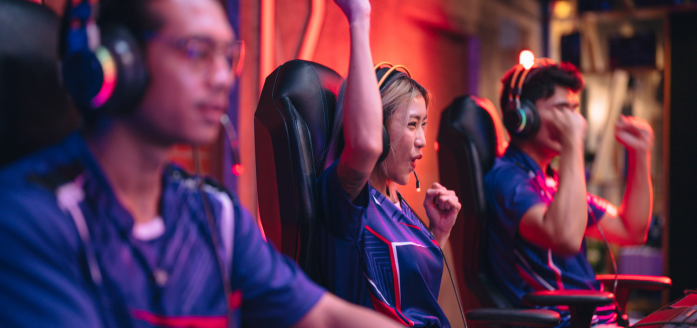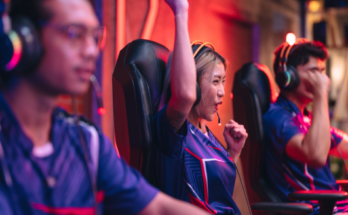In the age of rapidly evolving technology, the realm of friendship dynamics has seen a notable shift, largely influenced by the rise of esports. Esports, competitive video gaming played at a professional level, has burgeoned into a global phenomenon, captivating millions of enthusiasts worldwide. Beyond its entertainment value, esports has subtly but significantly altered the landscape of friendship, fostering new connections, strengthening existing bonds, and reshaping social interactions in profound ways.
Traditionally, friendships often revolved around physical activities, such as sports, outdoor adventures, or shared hobbies. However, the advent of esports has introduced a digital dimension to friendship dynamics. Rather than gathering in person, friends now connect through online gaming platforms, collaborating and competing in virtual worlds. This shift has broadened the scope of friendship, transcending geographical boundaries and enabling individuals to forge bonds with like-minded individuals across the globe.
One of the most remarkable aspects of esports is its ability to cultivate camaraderie among players. Whether teaming up in cooperative games or facing off against each other in intense battles, gamers develop a sense of unity and mutual support akin to that found in traditional sports teams. The shared experiences of triumphs and defeats foster a unique bond among players, deepening their friendships beyond the virtual realm.
Moreover, esports serves as a catalyst for socialization, particularly for individuals who may struggle with conventional social interactions. In online gaming communities, individuals can express themselves freely, unencumbered by social stigmas or physical appearances. This anonymity provides a safe space for individuals to connect based on shared interests and abilities, rather than superficial traits. As a result, friendships formed in esports environments often transcend societal barriers, fostering inclusivity and acceptance among diverse groups of individuals.
Esports also facilitates long-distance friendships, allowing individuals to maintain connections with friends regardless of physical distance. Through online gaming platforms, friends can engage in regular gameplay sessions, chat via voice communication, and even attend virtual events together. This constant interaction helps sustain friendships over time, bridging the gap between physical separation and emotional closeness.
Furthermore, esports has revolutionized the concept of socializing, offering a myriad of opportunities for collaborative play and group activities. Whether participating in online tournaments, streaming gameplay sessions, or joining gaming communities, individuals can connect with peers who share their passion for gaming. These shared experiences not only strengthen existing friendships but also lay the foundation for new connections to flourish.
However, the impact of esports on friendship dynamics is not without its challenges. As with any form of social interaction, conflicts may arise among gamers, leading to strained relationships and misunderstandings. In competitive gaming environments, disagreements over strategy, performance, or game outcomes can escalate into heated arguments, jeopardizing friendships in the process. Moreover, the pervasive nature of online communication can sometimes lead to misinterpretation or miscommunication, further exacerbating tensions between friends.
Additionally, the immersive nature of esports can potentially overshadow other aspects of socialization, leading to a decline in face-to-face interactions. Excessive gaming may consume large chunks of time, leaving little room for offline activities or personal interactions. This imbalance can strain friendships, as individuals prioritize virtual relationships over real-life connections.
Despite these challenges, the overall impact of esports on friendship dynamics remains overwhelmingly positive. The sense of belonging and camaraderie fostered within gaming communities provides individuals with a support network of like-minded peers. Moreover, the collaborative nature of esports encourages teamwork, communication, and problem-solving skills, which are essential for building strong and resilient friendships.
In conclusion, esports has emerged as a transformative force in shaping friendship dynamics in the digital age. By providing a platform for socialization, collaboration, and shared experiences, esports has expanded the horizons of friendship, connecting individuals from diverse backgrounds and fostering a sense of belonging within gaming communities. While challenges may arise along the way, the enduring bonds forged through esports serve as a testament to its profound impact on friendship in the modern world.



